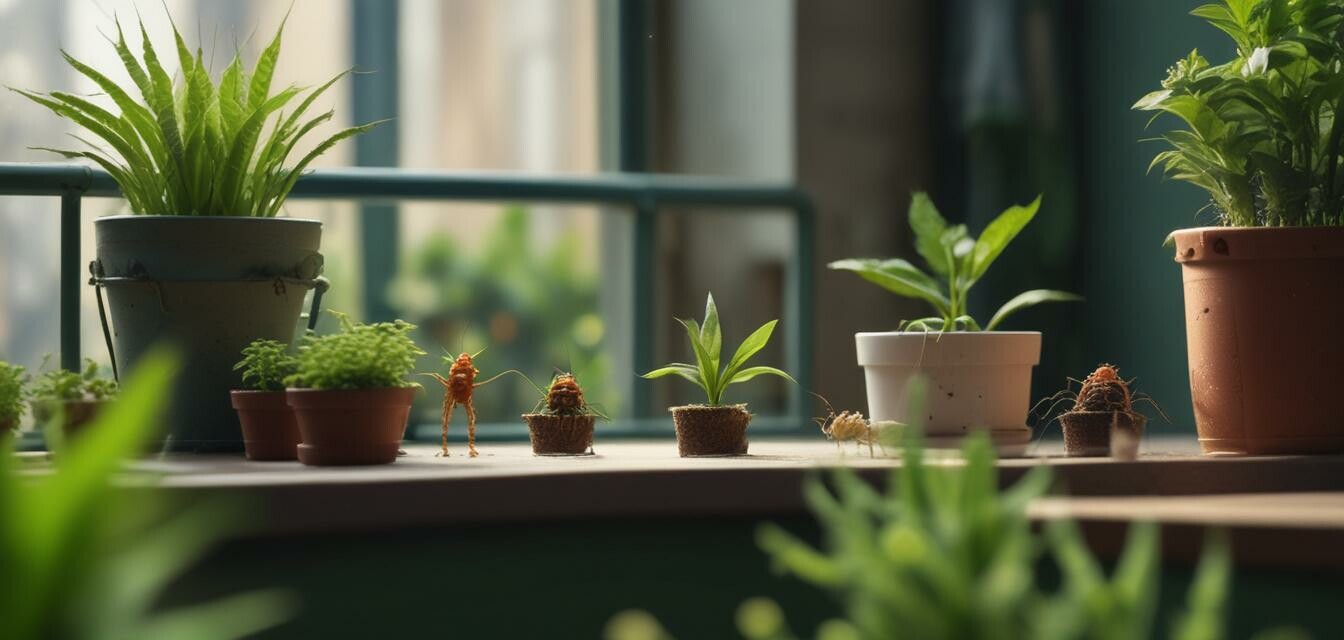
Tips for Combatting Houseplant Pests
Key Takeaways
- Identifying pests early can prevent major infestations.
- Natural remedies can be effective for pest control.
- Regular maintenance and inspection of your plants are crucial.
- Different pests require specific management strategies.
- Learnt best practices can keep your balcony garden thriving.
As urban gardeners, it’s essential to be aware of the pests that can affect our beloved houseplants growing on balconies. Whether you are dealing with the pesky aphids or stubborn spider mites, effective management strategies will help you maintain a healthy indoor garden. In this article, we will discuss practical tips to help you identify, combat, and ultimately eliminate houseplant pests.
Signs of Houseplant Pests
Pests can be sneaky and may go unnoticed until it's too late. Here are some common signs that your plants might be infested:
- Discoloration on leaves
- Sticky residue (honeydew) on the leaves or soil
- Visible pests on the foliage
- Webbing on plants, often indicating spider mites
- Leaves wilting or falling off prematurely
Common Houseplant Pests
| Pest | Identification | Damage |
|---|---|---|
| Aphids | Small, green or black insects | Distorted leaves and stunted growth |
| Spider Mites | Tiny, spider-like creatures, webbing | Yellowing leaves and fine webbing |
| Mealybugs | White, cottony masses | Yellowing leaves and stickiness |
| Fungus Gnats | Small flying insects, larvae in soil | Roots can be damaged, and plants may wilt |
Effective Strategies for Pest Management
Once you’ve identified the pests affecting your plants, implementing effective pest management strategies is crucial. Here are some methods to consider:
Natural Remedies
- Neem Oil: A natural pesticide that disrupts insect growth.
- Insecticidal Soap: Effective against soft-bodied insects like aphids.
- Peppermint Oil: Acts as a deterrent for many pests.
- Beneficial Insects: Ladybugs and lacewings can help control aphids.
Manual Removal
Regular inspections of your plants can help you catch pests early. You can:
- Wipe leaves with a damp cloth to remove pests.
- Spray plants with water to dislodge pests.
- Check underneath leaves where pests often hide.
Maintaining a Healthy Environment
Healthy plants are typically less susceptible to pests. Here are some tips:
- Choose the right houseplants for your balcony’s light conditions.
- Ensure proper air circulation around your plants.
- Avoid overwatering, which can create a suitable environment for pests.
- Fertilize appropriately to promote strong, healthy growth.
Prevention is Key
Preventing pests is often easier than dealing with an infestation. Implement these preventative measures:
- Quarantine new plants for a few weeks before introducing them to your balcony.
- Regularly clean your balcony and pots to remove debris.
- Inspect plants regularly for signs of pests.
- Rotate plants periodically to ensure even light exposure.
Additional Resources
For more in-depth information and strategies on maintaining a healthy urban garden, check out some of our other blog categories:
- Gardening Tips for practical advice on balcony gardening.
- Container Gardening strategies for maximizing your small space.
- Vertical Gardening techniques to enhance your balcony aesthetic.
- Essential gardening tools for balcony care.
- Accessories to make your urban garden thrive.
Pros
- Natural pest control methods are environmentally friendly.
- Regular maintenance can lead to healthier plants.
- Early intervention can save your plants from severe infestations.
Cons
- Pests may adapt to control measures if not managed properly.
- Some remedies may take time to show results.
- Not every method works for all pest types.
Conclusion
By understanding how to identify and combat household pests, you can maintain a healthy and flourishing balcony garden. Implementing these tips and employing preventative measures will not only protect your plants but also enhance your gardening experience. Remember that consistency is key in maintaining a pest-free environment.